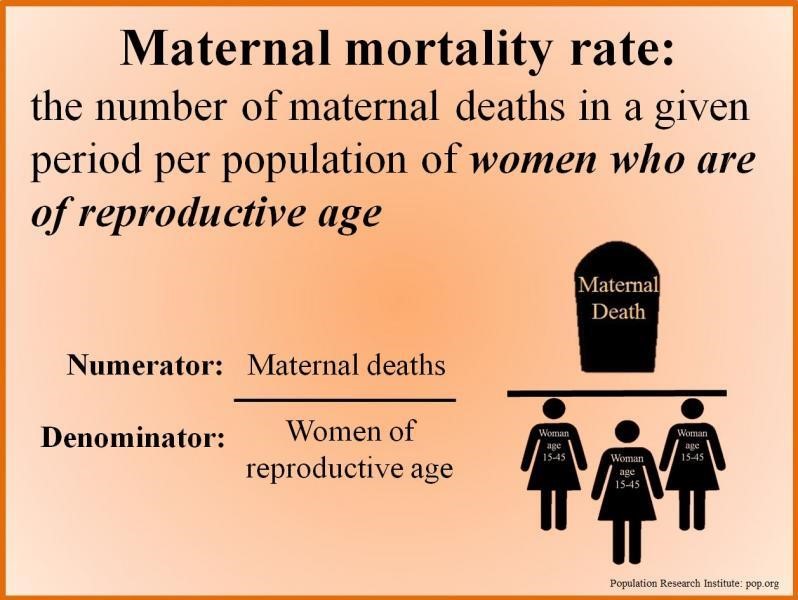Description

Disclaimer: Copyright infringement not intended.
Context
- Dhaanu's untimely demise due to an undiagnosed congenital heart defect highlights the gaps in maternal healthcare in rural Tamil Nadu.
- Lack of diagnostics and skilled obstetricians at the primary health care center contributed to the preventable tragedy.
ICMR-Funded Study:
- The Indian Council of Medical Research (ICMR) is funding a study to analyze maternal deaths caused by heart diseases.
- The study aims to develop a treatment protocol to prevent future mortality and enhance maternal healthcare services.
Note:

|
ICMR'S INTERVENTION:
Addressing Heart Disease Risk:
- The Indian Council of Medical Research (ICMR) aims to tackle the underlying risk factor of heart disease in maternal mortality.
- Recognizing the plateau in maternal mortality rate (MMR), ICMR plans to focus on improving care for heart diseases during pregnancy.
Scope of the Study:
- An Rs 8-crore study will be conducted across 50 centers and AIIMS to address heart diseases in pregnant women.
- The study aims to identify the ten most common heart diseases in pregnant women and develop treatment protocols accessible in remote rural areas.
Objective and Approach:
Treatment Protocol Development:
- The study seeks to develop treatment protocols tailored to address heart diseases during pregnancy.
- These protocols aim to enhance the quality of care for pregnant women with heart conditions, particularly in rural areas lacking specialized healthcare facilities.
Role of Obstetricians:
- Acknowledging Obstetrician's Efforts:
- Obstetricians have played a crucial role in managing complications like hemorrhage and septicemia during childbirth.
- However, focusing on improving care for heart diseases in pregnancy is essential to further reduce maternal mortality rates.
Study Methodology:
Randomized Participant Selection:
- Participants will be randomized to receive either the newly-developed protocol care or usual care.
- The study aims to assess the outcomes of implementing the newly-developed treatment protocols compared to standard care practices.
|
FINDINGS AND OTHER DETAILS
Emerging Risk Factor:
Changing Dynamics of Maternal Mortality:
- Maternal mortality rate (MMR) is a crucial indicator of women's health and childcare, reflecting a country's public health preparedness.
- While traditional risk factors like infections and excessive bleeding have been managed well, heart disease is emerging as a significant risk factor.
Trends in Maternal Mortality:
Improvement in MMR:
- Over the last two decades, India has witnessed a remarkable decline in MMR, showcasing progress in maternal healthcare.
- According to government data from 2018 to 2020, the maternal mortality rate stands at 97 deaths per lakh live births, reflecting ongoing efforts to reduce maternal mortality.
Understanding the Causes of Heart Disease Among Mothers:
Metabolic Changes during Pregnancy:
- Pregnancy induces significant metabolic changes in the body, increasing the risk of cardiovascular events.
- Cardiovascular alterations begin within the first eight weeks of pregnancy, with the risk of heart failure steadily rising by 24 weeks, plateauing at 30 weeks, and peaking around delivery.
Prevalent Heart Conditions:
- Valvular Heart Diseases:
- Studies indicate that valvular heart diseases, characterized by abnormal functioning of heart valves, are the most common cause of maternal deaths in India, comprising approximately two-thirds of cases.
- Congenital Heart Diseases:
- Congenital heart diseases, present from birth and affecting the heart's structure, account for 33 percent of maternal deaths.
Late Diagnosis and Stigma:
- Late Discovery of Underlying Conditions:
- Many pregnant women, particularly from lower economic backgrounds, may have undiagnosed heart conditions that surface during pregnancy.
- Stigma and Lack of Awareness:
- Stigma surrounding heart diseases may prevent family members from disclosing the condition to affected women.
- Some women remain unaware of their heart condition until pregnancy due to familial concealment or lack of diagnosis.
Impact on Maternal Health:
- Challenges Faced by Affected Women:
- Women with undisclosed or late-diagnosed heart diseases face heightened risks and complications during pregnancy.
- Lack of optimization of their condition before pregnancy contributes to poor maternal health outcomes.

Implementing a Treatment Protocol:
Collaboration between Specialties:
- Collaboration between cardiologists and obstetricians is crucial for identifying and managing complications of heart disease during pregnancy.
- Cardio-obstetrics teams in hospitals can facilitate interdisciplinary care, potentially reducing maternal deaths due to heart disease.
Role of Specialized Teams:
- Addressing Ignored Cases:
- In the absence of specialized teams, cases of heart disease during pregnancy may be overlooked or ignored.
- Dedicated cardio-obstetrics teams ensure comprehensive management of such cases, improving patient outcomes.
Current Status of Maternal Mortality:
Leading Causes of Maternal Deaths:
- Haemorrhage: 47%
- Pregnancy-related Infections: 12%
- Hypertensive Disorders of Pregnancy: 7% (Between 1997-2020)
States Achieving SDG Targets:
- Kerala: 19
- Maharashtra: 33
- Telangana: 43
- Andhra Pradesh: 45
- Tamil Nadu: 54
- Jharkhand: 56
- Gujarat: 57
- Karnataka: 69
The proposed treatment protocol, coupled with nationwide collaborative efforts and specialized healthcare teams, holds promise for reducing maternal mortality rates due to heart disease and advancing maternal healthcare in India.
MUST READ ARTICLE: https://www.iasgyan.in/daily-current-affairs/maternal-mortality-rate
|
PRACTICE QUESTION
Q. Examine the factors contributing to maternal mortality in India and suggest effective strategies to reduce it.
|
SOURCE: INDIAN EXPRESS















